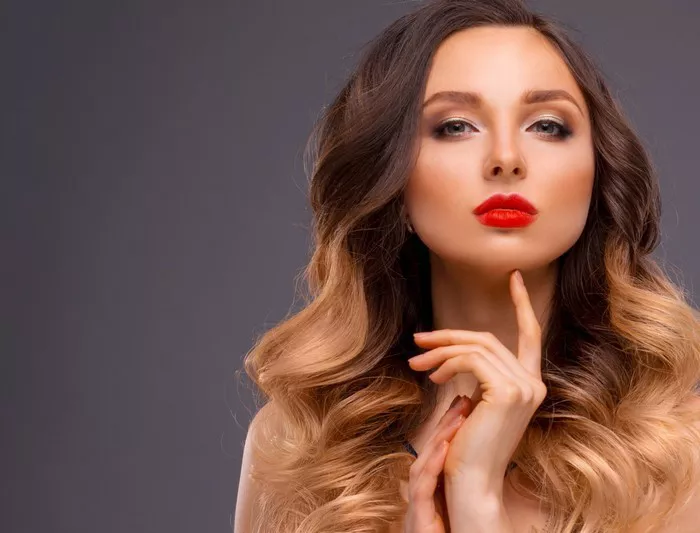A luscious mane is often considered a symbol of health and vitality, prompting many to seek ways to enhance and promote hair growth. In the quest for stronger, shinier locks, the role of vitamins in supporting hair health cannot be overstated. This comprehensive guide aims to answer the burning question: Which vitamin is best for hair growth? We will explore the essential vitamins, their functions, and how they contribute to promoting a flourishing head of hair.
1. Vitamin A: Nourishing the Scalp
Vitamin A plays a pivotal role in maintaining the health of the scalp, an essential foundation for robust hair growth.
Function: Vitamin A aids in the production of sebum, an oily substance that moisturizes the scalp and keeps hair strands healthy.
Sources: Sweet potatoes, carrots, spinach, and liver are rich sources of Vitamin A.
2. B-Vitamins: The Hair Growth Powerhouse
The family of B-vitamins, including Biotin, B5 (Pantothenic Acid), B6, B12, and Folate, collectively contributes significantly to promoting hair growth.
Function: B-vitamins play a crucial role in the creation of red blood cells, which carry oxygen and nutrients to the scalp and hair follicles.
Sources: Whole grains, meat, fish, eggs, leafy greens, and legumes are excellent sources of B-vitamins.
3. Vitamin C: Collagen Production for Hair Strength
Vitamin C is not only an immune system booster but also supports hair growth by aiding in collagen production.
Function: Collagen is essential for hair structure, contributing to strength and preventing breakage.
Sources: Citrus fruits, strawberries, bell peppers, and broccoli are rich in Vitamin C.
4. Vitamin D: The Sunshine Vitamin
While primarily known for bone health, Vitamin D also plays a role in maintaining hair follicles.
Function: Vitamin D supports the creation of new hair follicles and may help prevent hair shedding.
Sources: Sun exposure, fatty fish, fortified dairy, and egg yolks provide Vitamin D.
5. Vitamin E: Antioxidant Protection
Vitamin E acts as a potent antioxidant, protecting hair follicles from oxidative stress.
Function: Antioxidants help combat free radicals, contributing to healthier hair growth.
Sources: Nuts, seeds, spinach, and avocados are excellent sources of Vitamin E.
6. Vitamin K: Essential for Hair Strength
Vitamin K is often overlooked in discussions about hair health, but it plays a crucial role in maintaining hair strength.
Function: Vitamin K supports the health of hair follicles, contributing to reduced hair loss.
Sources: Leafy greens, broccoli, and Brussels sprouts are rich in Vitamin K.
7. Iron: Oxygenating the Scalp
While not a vitamin, iron is a vital mineral for hair growth. It ensures proper oxygenation of the scalp and hair follicles.
Function: Iron is essential for the production of hemoglobin, which carries oxygen to the hair roots.
Sources: Red meat, lentils, spinach, and fortified cereals are good sources of iron.
8. Zinc: Scalp Health Support
Zinc is crucial for maintaining a healthy scalp and preventing hair loss.
Function: Zinc helps support the oil glands around hair follicles, preventing potential hair loss.
Sources: Meat, dairy, nuts, and seeds contain significant amounts of zinc.
Conclusion: A Holistic Approach to Hair Health
In conclusion, achieving and maintaining healthy hair growth requires a holistic approach that includes a well-balanced diet rich in essential vitamins and minerals. No single vitamin can work miracles on its own; instead, it’s the synergy of various nutrients that contributes to vibrant and robust hair.
Consider incorporating a variety of nutrient-rich foods into your diet, possibly with the guidance of a healthcare professional or nutritionist, to ensure you meet your specific nutritional needs. Additionally, maintaining a healthy lifestyle, managing stress, and avoiding harsh hair care practices further complement the efforts of these essential vitamins in promoting optimal hair growth.
Remember, achieving the best results for your hair involves a combination of internal nourishment and external care. By adopting a comprehensive approach, you can unlock the potential for healthier, more resilient, and beautiful hair.
How Many Times A Week Should You Wash Your Hair


